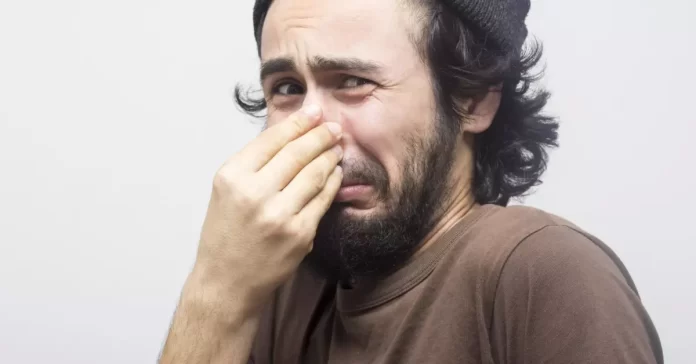
Sneezing – we’ve all experienced it. Sneezing involves the abrupt, involuntary release of air and saliva from the mouth and nose, often accompanied by a distinct “achoo!” sound. While many view sneezing as a simple bodily reflex, you might be surprised to discover that it offers some surprising health advantages.
Here are The 8 Surprising Benefits of Sneezing for Your Health
Clears Irritants
The primary purpose of a sneeze is to rid the body of irritants from the nasal passages. When your nose detects something bothersome like dust, pollen, or even pepper, it triggers a sneeze to expel these irritants. This protective mechanism helps keep your airways clean and clear.Improves Mood
Sneezing triggers the release of endorphins, our body’s natural feel-good chemicals. These endorphins can help boost your mood and provide a sense of relief after a sneeze. It’s like a tiny mood-enhancing burst, all from a simple “achoo!”Enhances Immune Function
Sneezing can also indicate that your immune system is actively working. When your body detects foreign invaders like viruses or bacteria in your nasal passages, it may trigger a sneeze as part of its defense mechanism. It helps prevent potential infections and keeps you healthier.Maintains Nasal Health
Sneezing helps maintain the health of your nasal tissues. It stimulates the cilia – tiny hair-like structures lining your nasal passages – to move. This action helps expel mucus and debris, contributing to improved respiratory health.Resets Your Senses
Ever notice how a sneeze can momentarily clear your nasal passages? This refreshing feeling is like hitting the reset button on your senses, allowing you to breathe more easily and enjoy the scents and flavors around you.Promotes Heart Health
This action helps expel mucus and debris, improving respiratory health. Although it’s not a substitute for cardiovascular exercise, an occasional robust sneeze can provide a mini workout for your heart.Social Connection
Certain cultures respond to sneezes with phrases like “bless you” or “gesundheit.” These social niceties can foster a sense of community and connection, reminding us that even something as involuntary as a sneeze can bring people together.Stress Relief
Sneezing can be a momentary distraction from daily stressors. It shifts your focus away from worries and onto the act of sneezing itself, providing a brief mental break.
Conclusion
While sneezing may catch us off guard at times, it serves several essential functions beyond expelling irritants. Sneezing is a fascinating bodily response with various health benefits, from clearing your airways to boosting your mood and strengthening your immune system. So the next time you feel a sneeze coming on, embrace it – your body might just be giving your health a little boost.
Frequently Asked Questions (FAQs)
What causes a sneeze?
A sneeze usually happens when something irritates your nose, like dust, pollen, or allergens. Your body’s response is to push out the irritant forcefully.
Is sneezing contagious?
While sneezing itself isn’t contagious, if it’s due to an infectious illness like a cold or flu, the germs causing the sickness can be contagious.
Why do we close our eyes when we sneeze?
Sneezing triggers a natural reflex that causes you to close your eyes. Sneezing happens involuntarily and acts as a protective mechanism for your eyes, preventing any particles from being expelled during the sneeze.
Can you sneeze while you’re asleep?
Yes, it is possible to sneeze while asleep. Sneezing is a reflex action and can happen during any stage of sleep.
How fast does a sneeze travel?
A sneeze can speed up to 100 miles per hour (around 160 kilometers) and release numerous tiny droplets.
Why does the sun make some people sneeze?
This phenomenon is called the “photic sneeze reflex” and affects about 25% of the population. It occurs when sudden exposure to bright light, like sunlight, stimulates a sneeze.
Can sneezing cause health problems?
Sneezing is a healthy reflex that helps remove irritants from the nose. Excessive sneezing due to allergies can indicate underlying health concerns.
What’s the record for the most consecutive sneezes?
Donna Griffiths achieved an incredible feat by sneezing continuously for 976 days. Her extraordinary sneezing marathon began on July 26, 1981, and it wasn’t until September 16, 1983, that she finally experienced her first sneeze-free day.
Is it possible to sneeze without making any noise?
Yes, it is possible to sneeze silently. Some people naturally have quieter sneezes, while others can suppress the noise by sneezing into a tissue or their elbow.
Do animals sneeze like humans do?
Many animals, including dogs, cats, and horses, can sneeze. It’s often a response to irritants in their nasal passages, similar to humans.









